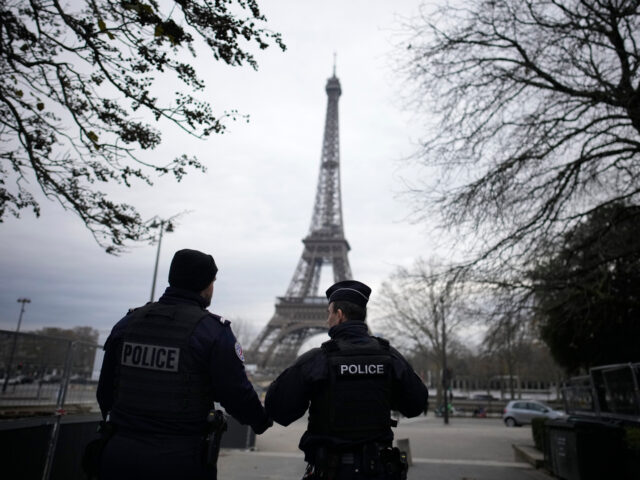The suspected Islamist behind the Paris terror stabbing attack that left one dead and another two injured has reportedly confessed to French police, claiming he was motivated by the “persecution” of Muslims throughout the world.
Iranian-heritage Armand Rajabpour-Miyandoab, 26, the alleged ‘Allahu Akbar’ knifeman who is suspected of stabbing a German-Filipino tourist to death and injuring two others with a hammer near the Eiffel Tower in Paris on Saturday evening has reportedly taken full “responsibility for his actions” while in police custody.
According to police information reported by Le Figaro, the French-born man was described as being “very cold and clinical” while reportedly claiming that he was inspired to attack innocent civilians because of what he saw as “the persecution of Muslims around the world”. Interior Minister Gérald Darmanin revealed on Saturday that Rajabpour-Miyandoab had also cited France’s “complicity” in Israel’s conflict with Hamas as further motivation.
At present, investigators believe that “everything suggests” that the radical Islamist “acted alone”. However, currently, three other people, including his associates and members of his family are in police custody. One of those in detention is a woman on the French intelligence services’ extremism watchlist, whom Rajabpour-Miyandoab is believed to have met with on the day before the attack.
The 27-year-old woman reportedly is linked to convicted Islamist terrorists in France, including Sarah Hervouët, who was connected to the failed car bombing terror attack on the Notre Dame Cathedral in 2016. She is also believed to have had a romantic affair with the brother of Mohamed Lamine Aberouz, who was sentenced to life in prison in October as an accomplice to the jihadist stabbing of a police officer and his girlfriend in 2016 in Magnanville.
Rajabpour-Miyandoab is claimed to have been in contact with other Islamist killers, including Abdoullakh Anzorov, a Chechen Muslim refugee, who beheaded French schoolteacher Samuel Paty in 2020. The Iranian-heritage suspected killer was also reportedly on the government’s terrorism watchlist before the attack on Saturday, having what is referred to as an “S-File”. He is also claimed to have suffered from some form of mental illness and had reportedly stopped taking his medication.
While surveillance was stepped up in October after he left his family home in Essonne, according to police investigator sources, online surveillance of Rajabpour-Miyandoab did not indicate that he was going to “engage in an imminent” attack and there was not enough evidence to charge him with any crimes before the stabbing. It is also being considered, according to Le Parisien, that claims made by Rajabpour-Miyandoab of turning his back on Islam before the attack were a tactical implementation of “taqiyya”, a practice within Islam of concealing one’s true beliefs.
In the wake of the latest terror attack, Frédéric Péchenard, the former director general of the national police, has warned that France will “probably have other” attacks in the near future, noting that the country — which has experienced large-scale immigration from the Middle East and Africa — has “entered a period of very great tension” due to the conflict in Israel.
“All of this necessarily has an impact on our soil, we have already had two attacks,” Péchenard said, referencing the Islamist killing of a teacher in Arras committed just days after the October 7th Hamas terror attacks in Israel.
Shortly before the latest attack in Paris, the so-called Islamic State (ISIS) issued a call for devotees to wage jihad in Europe over its support for Israel. The radical Islamist group urged Muslims to commit attacks in “Europe, the infidel West and everywhere… crusaders” with “bombs, guns, knives, cars, stones or punches and kicks”. Rajabpour-Miyandoab reportedly professed allegiance to ISIS before the attack.

COMMENTS
Please let us know if you're having issues with commenting.